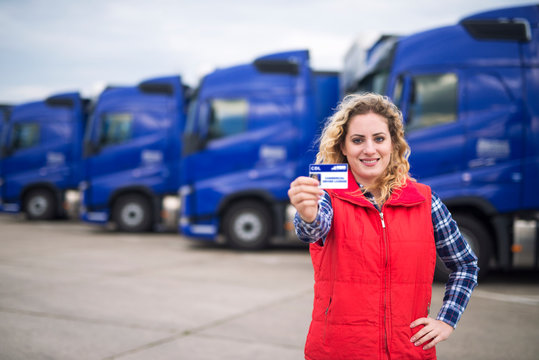CDL Insurance Requirements: What Commercial Drivers Must Know
Holding a Commercial Driver’s License (CDL) comes with added responsibilities — and one of the most important is maintaining the right insurance coverage. Whether you drive a semi-truck, bus, delivery vehicle, or any other commercial vehicle, you must meet specific CDL insurance requirements set by your state’s Department of Motor Vehicles (DMV) and, in some cases, federal regulations.
This guide explains how CDL insurance differs from regular car insurance, the DMV rules for commercial drivers, what happens if your coverage lapses, tips for lowering costs, and answers to frequently asked questions.
How CDL Insurance Differs from Regular Car Insurance
CDL insurance differs from personal auto insurance. The coverage limits, legal requirements, and risk factors are much higher for commercial drivers.
Key differences include:
- Higher Liability Limits
Commercial vehicles can cause significantly more damage in an accident due to their size and weight. Federal law often requires higher liability coverage — sometimes $750,000 to $5 million, depending on the type of cargo. - Specialized Coverage Types
CDL policies may include cargo insurance, bobtail insurance (for driving without a trailer), and physical damage coverage for expensive equipment. - Federal Motor Carrier Safety Administration (FMCSA) Oversight
If you operate across state lines, your insurance must meet FMCSA requirements in addition to your state’s DMV rules. - Employer vs. Owner-Operator Policies
Some drivers are covered under their employer’s commercial policy, while owner-operators must purchase their insurance.

DMV Rules for Commercial Vehicle Coverage
Every U.S. state requires proof of insurance to issue and maintain a CDL. While the exact rules vary by state, some common DMV requirements include:
- Proof of Minimum Liability Coverage is required before issuing a CDL or renewing commercial vehicle registration.
- Continuous Coverage Verification, often using electronic reporting from your insurance company to the DMV.
- Special Filings, such as Form MCS-90 for interstate carriers or state-specific proof-of-coverage forms.
- Higher Coverage for Passenger Vehicles, like buses or vans carrying multiple passengers.
If you fail to provide proof of valid CDL insurance, the DMV can suspend both your CDL and your vehicle registration.
What Happens If CDL Coverage Lapses
Driving a commercial vehicle without proper insurance is a serious violation with severe consequences:
- Immediate CDL Suspension
The DMV can suspend your CDL until you provide proof of coverage. - Vehicle Impoundment
Law enforcement may impound your commercial vehicle if you are you are caught driving without insurance. - Fines and Penalties
Fines for uninsured commercial drivers can be significantly higher than for regular drivers, often in the thousands. - SR-22 or Financial Responsibility Filing
After a lapse, you may need to file an SR-22 for a set period to prove you have insurance. - Loss of Employment
Employers typically require active CDL insurance to keep you on the job. - Higher Future Premiums
Insurance companies may view you as a high-risk driver, resulting in steep rate increases.
Tips for Lowering Commercial Insurance Costs
Maintaining CDL insurance can be expensive, but there are ways to reduce costs without sacrificing coverage.
1. Maintain a Clean Driving Record
Accidents, speeding tickets, and violations can dramatically increase your rates. Safe driving is the best way to keep premiums low.
2. Choose a Higher Deductible
Opting for a higher deductible can lower your monthly premium, but be sure you can afford it if a claim occurs.
3. Bundle Policies
If you own multiple commercial vehicles or combine personal and commercial policies with one insurer, you may qualify for discounts.
4. Complete Safety Training
Many insurance providers offer lower rates for drivers who complete certified safety or defensive driving courses.
5. Install Safety Equipment
Dashcams, GPS tracking, and anti-theft devices can not only improve safety but also reduce insurance costs.
Penalties for Uninsured CDL Drivers
Operating a commercial vehicle without the required insurance can lead to:
- State-Issued Fines — Often much higher than personal vehicle fines.
- Long-Term CDL Suspension — Some states may revoke your CDL for repeated offenses.
- Criminal Charges — In severe cases, uninsured CDL driving can lead to misdemeanor or even felony charges.
- Employment Consequences — Loss of a job and difficulty finding future employment.
The risks of driving without insurance far outweigh any short-term savings from skipping coverage.
FAQs About CDL Insurance
1. What is the minimum CDL insurance requirement?
It depends on the vehicle type and cargo. For example, FMCSA requires at least $750,000 in liability coverage for interstate freight carriers, but passenger vehicles may require $1.5 to $5 million.
2. Do I need CDL insurance if I only drive within my state?
Yes. Every state requires commercial drivers to have insurance that meets or exceeds state minimums.
3. Can my employer’s insurance cover me?
Yes, if you’re an employee driver. Owner-operators must purchase their policies.
4. How do I prove insurance to the DMV?
Your insurer usually reports coverage electronically, but you may also need to present a certificate of insurance or specific DMV forms.
5. What happens if I switch insurance companies?
Your new insurer must report the policy to the DMV to avoid a coverage gap. Always overlap policies for at least a day to prevent lapses.
Final Thoughts
Maintaining the right CDL insurance is more than a legal requirement — it’s an essential safeguard for your career, finances, and professional reputation. Whether you’re an owner-operator or company driver, understanding the DMV rules, avoiding lapses in coverage, and managing your insurance costs can keep you on the road and in business.
By staying compliant and proactive, you not only protect your CDL but also ensure you’re prepared for any situation the job might bring.